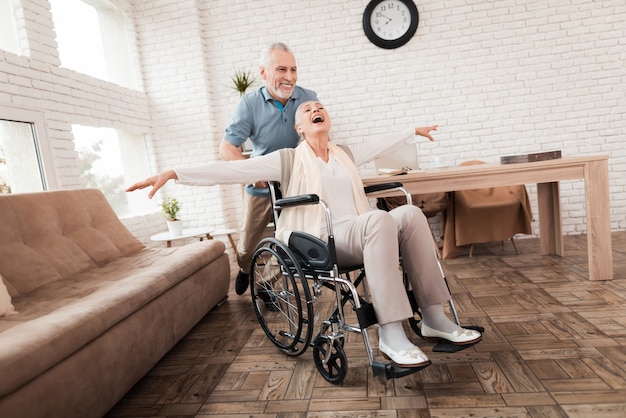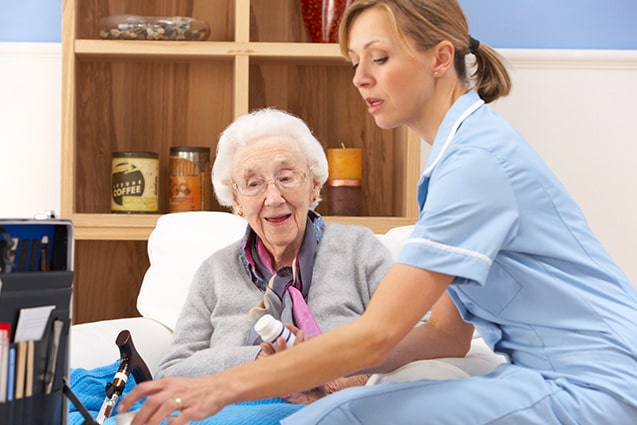Table of Content
The net effect is the same, they have more money available to them as a result of their familial caregiving efforts. For persons whose parents are financially dependent on them, the medical and care expenses incurred by the aging parents can be deducted from their own income. For persons who must pay for care for their elderly parent so that they are able to continue working, this credit is highly relevant. Expenses such as home care or adult day care, in most instances, are fully deductible under this credit. The concept of Consumer Direction is not limited to Medicaid programs. Most states offer what are loosely categorized as nursing home diversion programs.

In a limited number of states, Medicaid allows the adult children to become adult foster care providers for their aging parent. In this situation, the aging parent moves into their adult child’s home. The caregiver / child is responsible for providing personal care, assistance with the activities of daily living, meals, transportation to medical appointments, and other supports. Medicaid will continue to fund the elderly parent’s medical care, prescriptions, etc. In return, the adult children are compensated by Medicaid for their care services, but not for room and board.
Top 5 Behavior Management Strategies For Parents
Benefits include transportation, meals, and social services for frail older adults who would otherwise need ongoing care. Adult children that want to care for their aging parents at home, or in their parent’s home, have options. Many primary caregivers find that through planning and medical directives, in-home care is highly doable. If you have a poor relationship with your in-laws, but your significant other still insists that you both provide care as a couple, again, you must decide what you can and cannot do.
That is why it is essential to, in cases of dental issues and concerns, learn more about how to handle the situation. In any case, this article will discuss the seven steps that can help you and your senior parents to live as healthy and happy as possible. Nursing interventions may be required if your loved one has any diagnosis that impacts daily living and functioning. This prevents you from having to put your loved one in a nursing home or end-of-life care facility to provide for their medical needs. Instead, they can spend the end of their lives in the comfort of their homes with a family caregiver or other qualified individual. The point of aging at home is to stay independent and in the familiar environment we know and love.
Make It A Point To Understand Them
I know you will do everything you can for your parents Harleena 🙂 They are so lucky. Yesterday a very older aunt was slipped and injured, and unless someone didn’t notice her, she could have died. Neighbors were very generous enough to take care and offer help. Her siblings wanted to bring her with them to take care of her, but the same story.

Therefore, it is strongly advised that families plan in advance for this option to avoid both Medicaid and family conflicts. One can read more about the Caregiver Exemption here or connect with a Medicaid planning expert to discuss if, and how this option, would work for your family. How much the adult child receives in compensation depends on the value of the home and their parent’s equity in the home. It is important to note that the phrase “consumer direction” is not used in all states. However, the concept of consumer direction is available in all states.
Exploring sensory decline and dementia risk
We have identified four types of Medicaid programs / options that allow family members to be paid as caregivers. The bad news is that not all four are available in every state, but the good news is at least one of the four is available in every state. Do you have anyone in your family whom you have taken care of? What ways do you suggest to taking care of elderly parents or seniors?

I guess most of us as kids have those fears of taking care or losing our parents one day. But that’s what life is all about as you mentioned – caring for each other. I agree, if your Dad is happy and loving his life the way it is and if he has no health issues – then let it be. However, we shouldn’t wait for any health problems to arise and then take action. So, if he’s ready for even minutes of light walks, it might be a good idea to start him off with it – it’s recommended, and works well for the heart too.
This type of life settlement allows the policyholder to preserve the option to receive Medicaid in the future, should the proceeds from their life settlement run out. A more thorough investigation of this strategy and its pros & cons can be found here. Medicare Advantage , a privately offered alternative to Original Medicare , has grown in popularity over the years. Despite the growing popularity of Medicare Advantage, some seniors face obstacles that prevent them from truly understanding how it works and who it benefits. Yes indeed, sharing meals and spending time with our elders or parents, and just hearing them is half the battle won. I agree, we should never make them feel as if they can’t do anything, even though we know they aren’t all that capable.
Caring for the elderly at home can be quite a challenge for caregivers. They want to feel like they are really the humans they were 20 years ago. You are right in the mix of improving someone’s quality of life. That is probably the most important thing you should remember when giving care to an older person at their home.
More common is the long-term care insurance policy that requires care providers to be licensed. Fortunately, this should not prevent the family members of the policyholder from being paid to provide care. It does, however, create a minor logistical obstacle in that the son or daughter will have to obtain a business license as a care provider and register with their local authorities. While this process may sound daunting, it is in fact a fairly simple and quick process. The adult children who are now paid caregivers must declare their payment as income and pay taxes as they would with any other income. Most states’ Medicaid Waivers have an option called “Consumer Direction”.
Our in-laws are our spouse’s parents and our children’s grandparents. In more difficult cases, relationships with in-laws never really blossomed or have been downright impossible to cultivate. We recommend you get care providers to visit the elderly at home.
Thank you for writing such an indepth and comprehensive posts. Providing elderly care at home and caring for the elderly parents and seniors needs special guidance. Physical, emotional, and mental health is the key to aging well as an elderly person. It is said that the more active and social you are and the more you use your brain, the more benefits you will get. Family and friends should encourage their elderly relatives to stay active and social to avoid social isolation.

This will likewise give a definite picture of how much assistance is necessary during the day, evening, or over weekends. Do you need care but live with someone who can't stay with you during the day? Adult day care outside the home is sometimes available for older people who need help caring for themselves. If your caretaker needs to get away overnight, there are places that provide temporary respite care.
That is the perspective you should take when giving care to elders. This could eventually place a serious financial burden on your shoulders. A good way to reduce the financial weight of caring for an elderly parent is to seek out the financial support you need before it all becomes too much. For many adults, the responsibility of caring for an elderly parent tends to occur around the same time they head into retirement. If you're providing medical care, you'll probably face tougher requirements than if you focus on fun social activities. Is there a large enough diagnosis-specific population that you can specialize in?
Adult children are frequently placed in the situation of caring for an elderly parent as family members age. Frequently, the parent relocates to the home of the adult child or a senior group home or facility. Contrary to what you may think, putting all of your excess time and energy into helping your parent is not good for either of you. As the old saying goes, “You cannot pour from an empty cup.” Nearly a quarter of Americans say caregiving has made their health worse. On average, most caregivers provide about 22.3 hours of care per week to their parent or family member. Of course, those hours increase if your parent lives with you.

No comments:
Post a Comment